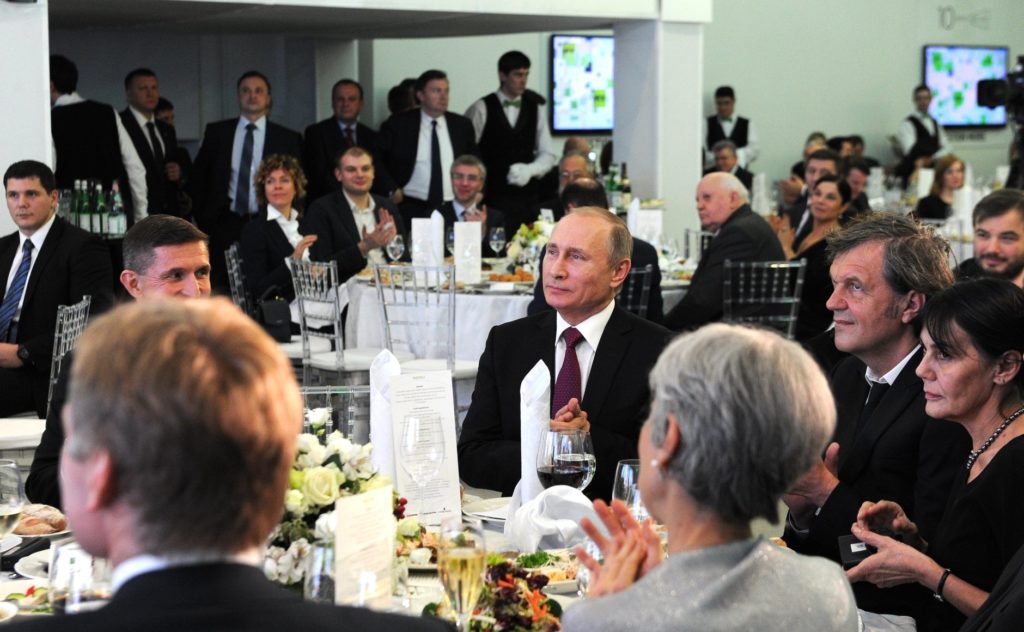Grifters and Useful Idiots

I was recently interviewed by Uri Friedman, a national-security reporter at The Atlantic, about the evolution of Bernie Sanders’ positions on foreign policy. As is typical, we talked for a while but most of what I said wound up as background. That’s how it should be. I’m not working with the campaign, and Friedman rightfully focuses on relating material from his interview with Sanders’ chief foreign-policy aid, Matt Duss.
One of the things I stressed to Friedman was that Sanders is unusual in that he’s, in multiple senses of the term, an ‘old leftist’ who has nonetheless updated his views in light of the significant changes in world politics since the collapse of the Soviet Union.
For example, in the 1980s he rightfully opposed American support for authoritarian coups and right-wing death squads. We can debate about whether this implied expressions of support for socialist authoritarians such as Cuba and Nicaragua. Even though I don’t agree with it, I understand the impulse in the context of truly appalling American policies in Central and Latin America – especially when filtered through socialist solidarity.
We no longer live in that world. While American dark money supports the reactionary right abroad, Russia has become a state sponsor of anti-progressive forces; mutual empowerment among authoritarian, often kleptocratic, regimes blurs ideological lines. It is easier than ever to oppose American-sponsored regime change without actively embracing the corrupt and autocratic government in Venezuela or the corrupt, autocratic, and mass-murdering government of Syria. The pursuit of global social justice neither demands nor benefits from the idea that “the enemy of my enemy is my friend, and my enemy is American foreign policy”.
Unfortunately, there are plenty of grifters and useful idiots selling that line in defense of corrupt, repressive, and mass-murdering regimes. Charles Davis has written a number of scathing assessments of these self-styled anti-imperialists. Now Joshua Collins has begun a three-part series on their major personalities.
Max Blumenthal got his start writing about Syria in 2011, where he was staunchly on the side of rebels against Assad. He spoke passionately of atrocities committed by the Assad regime, even resigning from a Beirut paper in 2012 because he claimed they were “Assad apologists”, who “paid me pathetically, barely enough to pay rent in my New York apartment.”
He even goes so far as to say that some of his colleagues in Syria were so caught up in “Anti-Imperialism” that they found themselves in the warped position of defending Assad, whom he viewed as a murderer.
He was accompanied in this endeavor by his mustachioed Brooklyn hipster side-kick Ben Norton, who, unlike Max, dispensed his Syria expertise via internet from New York.
It’s unclear what qualifications Norton possessed at the time however, other than a willingness to follow Max’s every editorial lead, a bitchin’ one-man noise band, and the sweetest chinstrap in Williamsburg, but he was on board, and he was vehemently anti-Assad.
Suddenly, in 2015 Max and his pet mustachio flipped sides. It just so happens that they became pro-Assad after attending a Moscow luxury Gala; the same event that got Jill Stein and Trump appointment Michael Flynn (who was paid $40,000 for attending) in hot water. They were new true-believers in the Assad regime, and enthusiastic apologists for the murderous actions they had previously railed against.
Was it a Russian buy-out that changed their views? That’s hard to say. Despite Grayzone’s constant evidence-free attacks on other journalists’ supposed connections to the pentagon and the NED (National Endowment of Democracy, which he claims is an instrument of “regime change”), the funding for Grayzone is completely opaque.
It is unclear how they fly a dozen employees around the world and still manage to rent expensive apartments in New York and Washington D.C.
Collins focuses his attention not on Syria, but on the disinformation peddled about Latin America. His discussion is worth reading. It fits the same pattern that we’ve also seen when it comes to defending China’s interment camps and crackdown against pro-democracy activists in Hong Kong: peddle disinformation and slime anyone who disagrees as a tool of American imperialism.
As far as I’m concerned, this version of the “anti-imperialist” left is our alt-right, and they’ve grown in a parallel way: by bootstrapping onto the rest of the progressive left, taking positions that make them appear as credible allies, and then inserting their propaganda. This creates familiar dilemmas for progressives: pay them too much attention and imply that they are far less marginal than they actually are, pay too little and allow them to further infect the broader movement. I have no idea what the right balance is.


